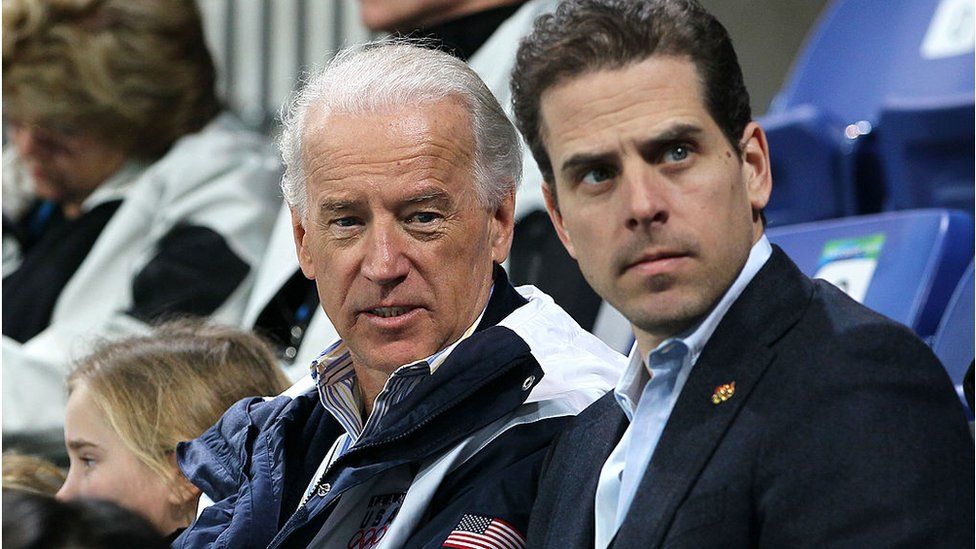-

-
-
Loading

Loading

Politically speaking, there are currently two factions in America with polarized viewpoints. One group is outraged and horrified by the numerous federal and state criminal charges currently faced by former President Donald Trump. They see this as a deep state conspiracy orchestrated by President Joe Biden's Department of Justice. On the other hand, another group believes that this same justice department has unfairly targeted Mr. Biden's son, Hunter, for the past five years over his tax affairs and personal behavior as a self-declared and repentant drug addict. In essence, both sides believe that the agency responsible for enforcing the laws of the land has been influenced and politicized by the opposing party. When Hunter Biden's lawyer responded to the news of his client's indictment on three federal gun charges, he accused the prosecutor of succumbing to "improper and partisan interference" from Trump-supporting Republicans. On the other hand, conservatives like Andy Biggs in Congress suggested that these charges were merely a maneuver to create an illusion of fairness within the justice department. The legal troubles of Hunter Biden not only affect his father and family personally but carry wider implications. Republicans have been aware for some time now that the president's son is a political vulnerability. Exploiting this vulnerability not only has the potential to agitate Joe Biden but also serves as a distraction from their own legal issues involving Donald Trump. Additionally, it is worth noting that many Democrats are unhappy with Joe Biden running for the White House again in 2024, and Hunter Biden's situation provides another reason for some to call for the 80-year-old president to step aside and make way for the next generation of leaders. Therefore, the outcome of Hunter Biden's case will play a crucial role in an upcoming election year that promises to be tumultuous. However, Republicans face a dilemma in weaponizing Hunter Biden's problems. Although the three gun-related charges are felonies and further charges related to his tax affairs and foreign dealings could follow, they do not currently match the scale and quantity of the alleged crimes associated with Donald Trump. Any attempt to weaponize these issues may invite the American people to draw comparisons. Furthermore, it is important to note that Hunter Biden is not running for any political office, let alone the presidency itself, which Democrats will undoubtedly emphasize. One interesting aspect of Hunter Biden's case is that his lawyers still believe the plea deal that fell through in July could potentially be revived. They also believe that recent expansions of Second Amendment rights by various courts could potentially aid his defense, as there is no constitutional prohibition on drug addicts bearing arms. This irony may be notable considering most Democrats' stance on gun control. The indictment on Thursday came just days after the Republican Speaker of the House of Representatives, Kevin McCarthy, announced an impeachment inquiry into President Biden, a move dismissed as a political stunt by the White House. Mr. McCarthy cited "serious and credible allegations" involving the family's business dealings and President Biden's conduct. Republicans hope that this new inquiry implicates the president in matters of power abuse and corruption. However, the existing investigations into Hunter Biden have thus far produced only fragments of testimonies from former business partners, an FBI informant, and a couple of IRS agents, and nothing substantial enough to prove any wrongdoing. The subpoenas that may follow could potentially change the situation, but given the slim Republican majority in the House, it remains uncertain if Republicans would succeed in an impeachment vote on the House floor, if it were to come to that. What is certain is that the clear distinction between the political and legal systems has become increasingly blurry. This convergence poses a significant problem, according to Randy Zelin, an adjunct professor of law at Cornell Law School. Zelin argues that the criminal justice system is being exploited for political purposes, stating that "this country is being torn apart by this never-ending battle."